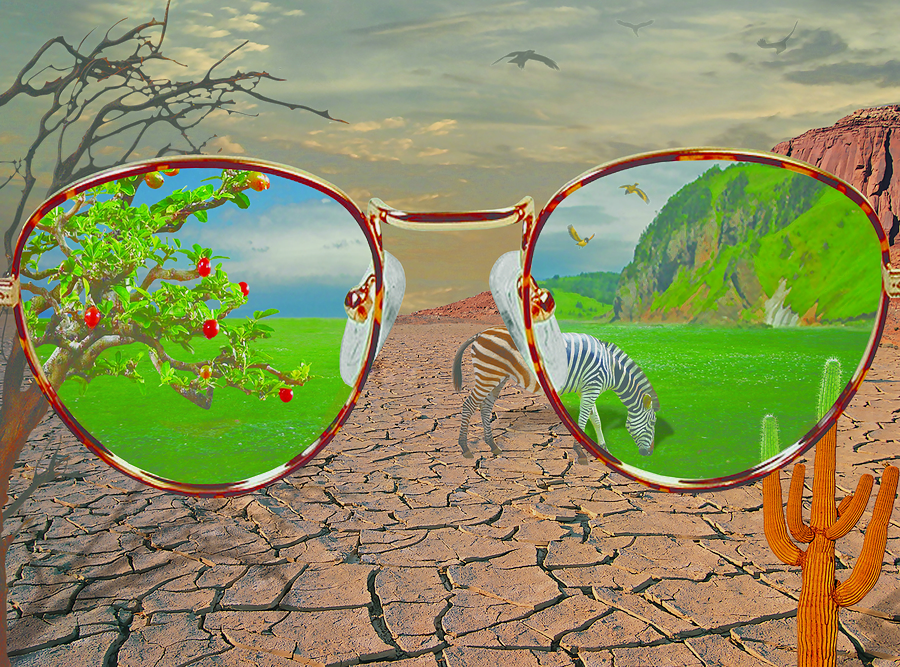In marriage, you get what you look for

Success in marriage can be as simple as looking for the right things.
When we were dating, everything about the other seemed exciting and wonderful. Each discovery about the each other was a delight. There were still the stuff ups and let downs, but we lived in an aura of good will and such disappointments were quickly overlooked.
This ‘irrational’ prejudice in the other’s favour was a mentality that constantly sought the good; we looked for, and found, all that was lovable about each other.
Psychologists call this phenomenon ‘confirmation bias.’ It’s a tendency to predominantly see the aspects of reality that confirm our belief and to overlook those aspects that contradict it. It’s common in all areas of life including relationships and religion.
For example, believers can see the evidence of God everywhere they look. Non-believers see the same reality but conclude any good fortune is only coincidence, that the glory of creation is simply the result of random evolution.
The same thing can happen in our relationships. If we believe a person is kind and thoughtful, we’ll more readily notice their kind and thoughtful acts. If we believe that a person is selfish and thoughtless, we’ll find our belief confirmed as we search their behaviour for evidence to support our convictions.
As we moved beyond the love bubble, the positive regard we had for each other started to wane. When we’d been a bit tense with each other, we would find ourselves slipping into a state of persistent disappointment and frustration. Every interaction seemed to confirm what we already knew: the other was selfish or lazy or manipulative or whatever. The self-talk became laced with ‘he always’ and ‘she never’ monologues as we told ourselves over and over that our perspective was true and correct.
But was it really? In truth, we were only looking at one narrow viewpoint. It’s like the person who is too busy looking for cracks and stumbling blocks on the path at his feet that he never notices the smiles of the people he passes. He concludes that the road is treacherous but he’s really only looking at a very narrow slice of the total reality.
The same is true when we’re stuck in a blue-funk. It’s as if we have tunnel vision and all we can see is the deficits in the other. We totally miss the wonder of the whole person who is a complex mix of beauty and ugliness, of strength and weakness, of virtue and vice – all of which is worthy of our respect and love.
People say that love gives you rose coloured glasses. It’s a saying laden with derogatory overtones suggesting the wearer of rose glasses is out of touch with reality. Perhaps it would be more accurate to say that they see perfectly well; they simply choose to focus on the good in the other. And by the way, they’re usually happier than the so-called ‘realists’!
Try this experiment. Scan the room for ten seconds and make a mental note of anything that is blue. Close your eyes and try to recall anything that was pink. Can’t remember anything? Of course not! You were too busy focussing on the blue to even notice the pink.
One of the best ways to foster a rosy (rather than a blue) view is to cultivate a habit of gratitude. Take any relationship that is mired in crankiness or frustration. Make a conscious effort to resist the temptation to scan for faults. Instead, look for the blessings in the other and thank them for it.
Look for their strength, their beauty, their virtue and call it out. People are more motivated to do better when someone believes in their goodness than when they are criticised and reminded of their deficiencies. And you’ll feel a whole lot better too.
If all you ever do is look for the deficits in the other, you’ll constantly be frustrated and hurt in your relationship. So put on your rose-coloured glasses and start enjoying your relationship.





Haven’t you heard that a picture paints a thousand words? Your picture entitling this article shows a pair of glasses seeing green grass and fruit on trees when in ACTUAL reality it is a barren arid dried up land.
Are you then implying then that we should all be hallucinating? Fooling ourselves to think that there is something good on the tree to eat when there is none? You’ll be eating air for most of the time and you’ll be wondering why you’re still hungry!
Great article! Thanks Francine and Byron
Well put. thanks.